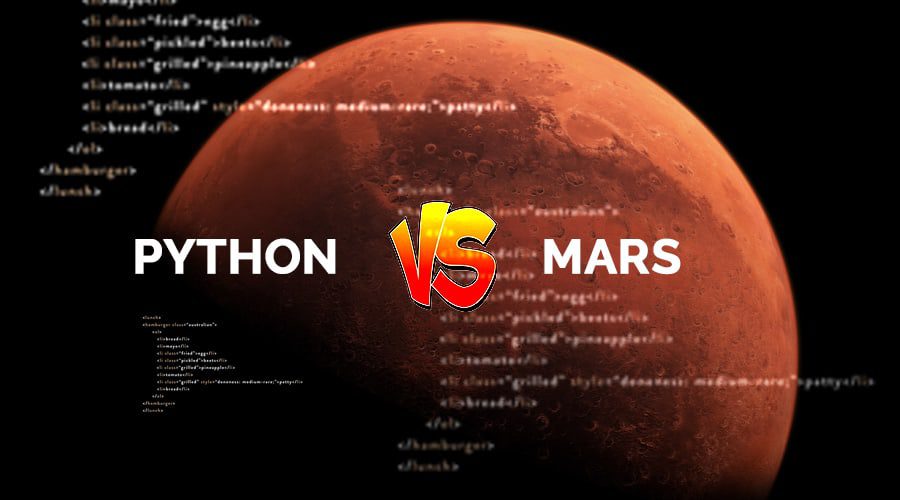Analytics Insight
Top 10 Interesting Facts About the Internet’s Favorite ChatGPT You Should Know
Twitter Removes Blue Tick from PM Narendra Modi’s Account
Trump’s NFT Collectibles are Dying After Being Accused of Plagiarism
Importance of Big Data in Education
The 10 Most Impactful Chief AI Officers of the Year 2022
The 10 Most Promising AI Solution Providers of 2022
The 10 Most Inspiring Tech Leaders to Watch in 2022
The Top 10 Most Influential CEOs to Watch in 2022
No products in the cart.
Programming languages can aid astronomers by speedily solving complicated mathematical equations and calculations. These systems can also assist with data processing and analysis tasks that can take a long time or be challenging for humans to do.
Astronomers depend on programming because it enables them to process massive volumes of data. Astronomy applications use a range of programming languages, including Java, C++, and MATLAB, Python, etc. But there is a new programming language called MARS!
Mars is a relatively straightforward imperative programming language, but there’s a catch: each and every function and expression is pure. This means that a function that you call is guaranteed to have no side effects, as it cannot change its parameters, alter global variables, or execute input/output operations. Mars, however, offers all the desirable characteristics of imperative programming, such as local variable assignments and loops, unlike other pure languages. Additionally, the compiler automatically transforms ineffective copy-and-update actions into damaging in-place operations. A robust static type system, algebraic data types, pattern-matching switch statements, and higher-order functions are just a few more appealing characteristics that Mars boasts that were inspired by functional programming. Mars is not fully functional programming language; it is an experiment. You can use it to experiment with the limitations of declarative and imperative programming.
One of the programming languages used in astronomy is Python. Python is primarily used in astronomy for data analysis and visualisation.
Python has been a boon for the space. Not just for astronomy, Python is one of the most widely used programming languages today. In reality, it has applications in a variety of fields, including engineering, physical sciences, and mathematics. Other industries that make use of it include geology and space exploration. Python is inextricably linked to the online community that has developed around it, where programmers from different fields exchange code examples and solutions on websites like stack overflow. Many astronomy-related issues have been resolved using the Python programming language. Making automated telescope systems, creating maps of astronomical phenomena like meteor showers, finding new planets, and even processing Hubble Space Telescope data have all been done with it. However, how has Mars now also used the language?
The aim of NASA’s Mars 2020 project was to conduct geological and meteorological study, look for settings capable of supporting biological life, and find signs of potential Martian life. On July 30, 2020, the Perseverance Mars rover was launched from Cape Canaveral aboard an Atlas V rocket. It needed to travel more than 470 million kilometres. At the base of the Jezero Crater on Mars, the probe was supposed to touch down. It went off without a hitch on February 18, 2021. Python helped in the first pictures of the Martian surface to Earth four minutes after landing. As it happens, this programming language was quite important to the mission. Five cameras positioned in various locations around the probe captured the landing itself.
So, as per history, whereas MARS is still an experiment PYTHON proved to be more beneficial for the Red Planet.
Disclaimer: The information provided in this article is solely the author’s opinion and not investment advice – it is provided for educational purposes only. By using this, you agree that the information does not constitute any investment or financial instructions. Do conduct your own research and reach out to financial advisors before making any investment decisions.
Subscribe to our weekly newsletter. Get the latest news about architecture, design, city, and inspiration.
Analytics Insight® is an influential platform dedicated to insights, trends, and opinion from the world of data-driven technologies. It monitors developments, recognition, and achievements made by Artificial Intelligence, Big Data and Analytics companies across the globe.
source
—
Note that any programming tips and code writing requires some knowledge of computer programming. Please, be careful if you do not know what you are doing…